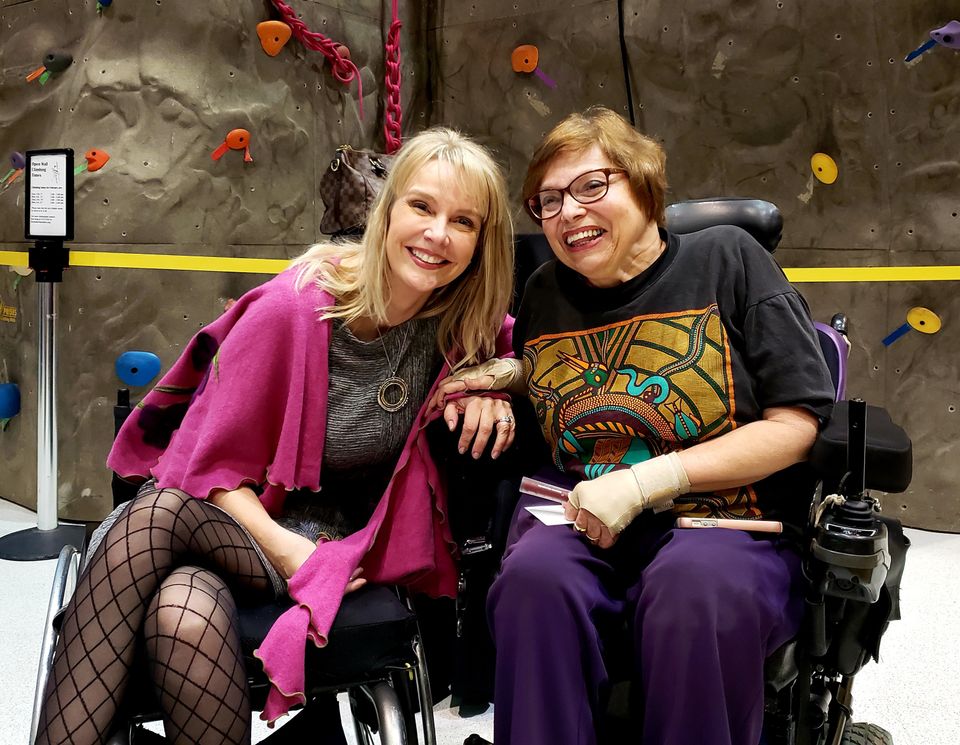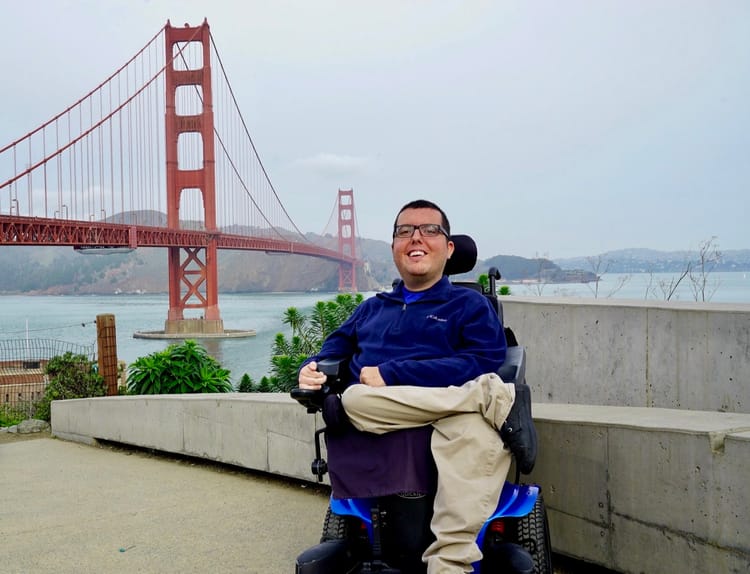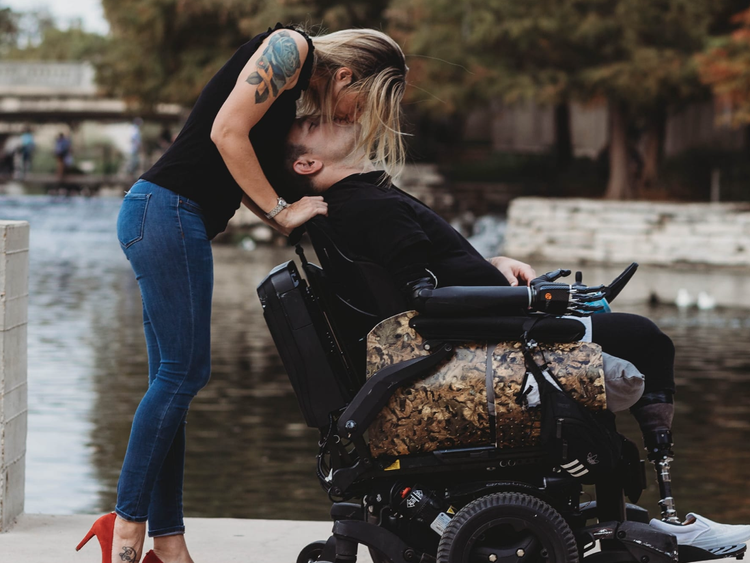A Tribute to a Disability Rights Revolutionary

***This post is written by Kelly Narowksi, Disability Rights Advocate and Professional Speaker***
I flew to a conference just for a chance to meet a celebrity. Not being scheduled to deliver a speech or serve on a panel, I just wanted to be near disability rights champion Judy Heumann. She was nearby on the first day of the event, but starstruck, I was afraid to approach her. I had met at least a dozen celebrities and politicians before, including a U.S. president, but this was different. As disability rights royalty, she was my mentor, and I knew undoubtedly that my quality of life would not be as good without her leadership and willingness to fight for individuals with disabilities. A fellow conference attendee finally coaxed the normally confident me into approaching Judy, explaining that she was very nice.
“Does anyone have any lip gloss?” That is one of the first things Judy said in my presence. Having immense respect for her, I grabbed my bag of lip glosses from my purse as quickly as possible and gave her several options. She chose one and ended up loving how the color looked on her. When she tried to give it back to me, I adamantly refused, explaining enthusiastically that she was the reason there were ramps everywhere. She then humbly explained that it was actually a whole team of people who were responsible for that. I knew what she meant, but I also knew she led some of the biggest battles during the hardest part of the disability rights movement.
It all started with her parent’s example. When Judy was denied admission into public school and deemed a “fire hazard” at the age of five, her parents fought for change and won. At the age of twenty-one, Judy was denied an elementary school teaching credential because of her disability. She sued the New York City board of education, won, and became the first wheelchair-using teacher in the state. At the age of thirty-four, an attempt to remove Judy and her friend from a local business occurred, and the reason given was that they were “too disgusting to look at.” These events were just the tip of the iceberg. The episodes of blatant discrimination she dealt with throughout her life, especially during childhood and early adulthood, are too numerous to count. I’d venture to say most people wouldn’t have had the courage to take those profoundly hurtful experiences and use them as fuel to make enormous changes that affected millions upon millions in society over the long term. But Judy did it.
Along with Ed Roberts, another disability rights superstar, Judy helped found the Berkeley Center for Independent Living, which ignited the launch of the Independent Living Movement nationally and globally. They also founded the World Institute on Disability. After serving for many years in various roles, Judy was appointed by both President Clinton and President Obama to serve in positions that improved the lives of people with disabilities in the United States and internationally. All of these accomplishments are still felt throughout the disability community today.
One of her most game-changing accomplishments was her leadership in the 1977 “sit ins” throughout the country. This involved the occupation of federal buildings and the refusal to leave until the Section 504 regulations were signed. They had been stalled for four years as Section 504 was the part of the Rehabilitation Act of 1973 that the president refused to sign. The section prohibited discrimination against people with disabilities by any entity receiving federal funds. So, it applied to everything from the national parks to the post office to most post-secondary education institutions. The sit-ins were successful, and the regulations were signed. This act was a crucial stepping-stone on the way to getting the landmark Americans with Disabilities Act (ADA) of 1990 passed, which would also prove to be no easy feat.
Besides contributions to the mid-late 80s battle in getting the ADA passed, she was instrumental in developing and implementing the Individuals with Disabilities Act, which mandated an equal education for all children, regardless of ability. She was also involved in staunchly advocating worldwide for the UN Convention on the Rights of Persons with Disabilities.
Keeping Her Legacy Moving Forward
Judy did the hard stuff so our lives as individuals with disabilities would be much easier now. She reminded us to speak up, sometimes shout, and that it was okay to get into adversarial situations for the greater good, even if that means engaging in non-violent civil disobedience or legal action. At a relatively recent Zoom event, during the Q&A portion, a young woman complained to Judy about a discriminatory situation she had encountered. Judy reminded her that the enforcement measures were built into the laws for a reason, that they were there for her to use when necessary.
Unfortunately, I have found that most people with disabilities who are discriminated against won’t speak up. Sometimes it’s out of fear of making waves; other times, it’s about a lack of knowledge. What I want them to realize is that there are many ways to go about advocacy. It doesn’t always mean filing a Department of Justice (DOJ) Complaint for ADA (Titles II and III) violations. However, I recommend it as the DOJ looks for patterns and has a great deal of power to force significant change in a community. It doesn’t always mean filing a Department of Transportation (DOT) complaint when an Air Carrier Access Act violation has occurred, although it is recommended in many cases. It doesn’t always mean filing a private lawsuit. However, when advocating, if talking to someone who is violating disability rights legislation does not work, a lawsuit may be the best option in some situations. Judy thought so, and I couldn’t agree more.
Several months ago, a wheelchair user told a disability rights advocate that she didn’t want to raise a fuss about an ADA violation because people get too “judgey” about it. When my advocate friend told me of the conversation, I responded, “I’m sure people were judgey towards Judy Heumann, Ed Roberts, and Justin Dart, too. And where would we be without them? Mostly at home- that’s where we’d be! We owe it to future generations to do the right thing. After all, Judy and countless lesser-known activists did it for us.
At Judy’s funeral last week, friends at her synagogue said she was full of joy, spirit, and love. One said she was transformed by Judy. My hope is that everyone is transformed and inspired by Judy’s courage and lifelong mission. If we all continue her legacy, the world will become a more accessible, inclusive, and loving place.
About the author
Kelly Narowski is a professional speaker and has delivered hundreds of speeches
to civilian and military audiences on topics such as disability law & policy,
disability awareness, and injury prevention. She also volunteers as an active
disability rights advocate, serving in many roles that improve the lives of
individuals with disabilities, including past leadership in the 82nd Airborne
Division’s Wounded Warriors Committee. She currently serves as vice-chair of the
board of directors of MERIL, a center for independent living in her area. Ms.
Narowski holds an ADA Coordinator certification and is certified as an Army
Master Resilience Trainer. She also holds a master’s degree in disability studies
and is currently a candidate for a master’s in psychology. As an avid traveler and
wheelchair user, Ms. Narowski recently visited her 50th country, completing her
“50 by 50” goal. Stationed at Fort Leavenworth, her husband is a recently retired
Army officer. They are currently building a home in the Kansas City area where
they will reside with their two rescue dogs, Niles and Frasier.




Comments ()